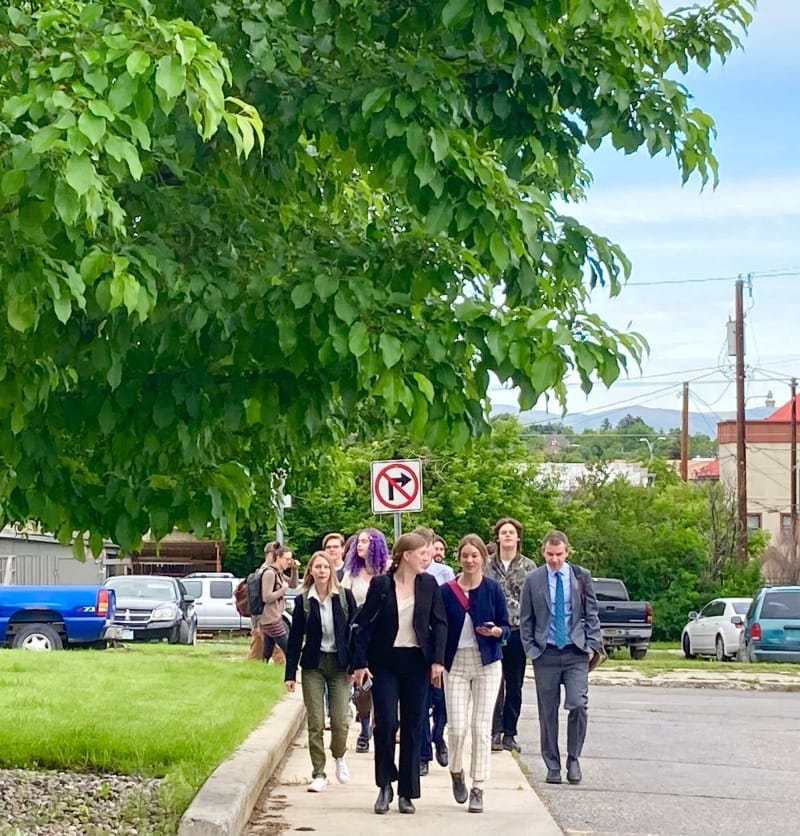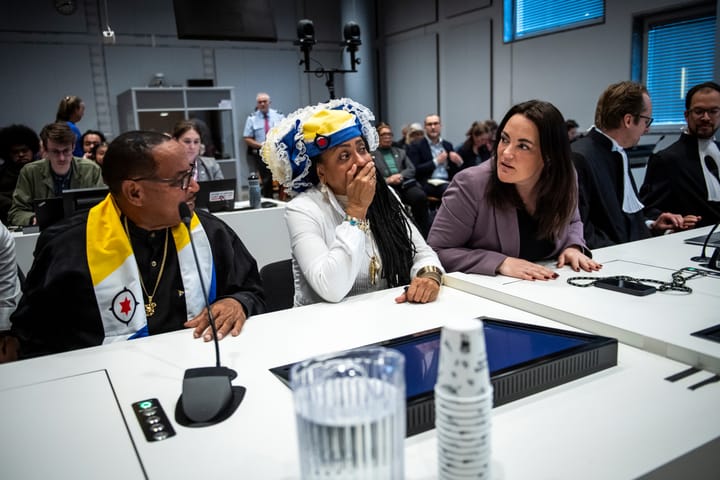Youths Sue Trump To Stop Anti-Climate Agenda, Arguing It Violates Right To Life

Story originally published in Sierra
As the Trump administration moves to turbocharge fossil fuel production while undermining clean energy, young Americans have turned to the courts to fight back, arguing that these executive actions violate their constitutional right to life.
Last week, 22 youth activists ranging in age from seven to 25 launched a new climate lawsuit challenging the administration’s moves to boost fossil fuels and dismantle climate protections. The lawsuit, Lighthiser v. Trump, was filed in federal district court in Montana—a state where young people won a landmark constitutional climate case in 2023 that invalidated an anti-climate state policy. Ten of the plaintiffs from that case, Held v. Montana, are going back to court as plaintiffs in a new case arguing that Trump’s executive actions violate their constitutional rights to life and liberty.
The lawsuit aims to strike down several executive orders that explicitly promote fossil fuels while blocking clean energy like wind and solar. These orders include day-one directives to unleash American energy and declare an energy emergency as well as one signed on April 8 designed to try to revive the fading coal industry.
Plaintiffs also challenge actions by the administration to suppress climate science, such as by scrubbing climate change references from government websites and effectively ending the National Climate Assessment reports by firing all the scientists working on them. The Trump administration’s actions, the case asserts, amount to a “wholesale attack on clean renewable energy and climate science,” and they attempt to unlawfully override federal laws such as the Clean Air Act intended to protect public health and the environment.
Defendants include President Trump as well as multiple executive branch officials and agencies, such as the Office of Management and Budget and its director, Russell Vought (one of the architects of Project 2025); the EPA and its administrator, Lee Zeldin; the Departments of Interior, Energy, Transportation, and Commerce and their head officials; as well as NASA, NOAA, and the National Institutes of Health. The 100-plus-page complaint details how the defendant agencies are implementing Trump’s pro-fossil-fuel, anti-climate executive orders. Plaintiffs argue these orders are unconstitutional since they will exacerbate the climate emergency that threatens their health, safety, and quality of life.
“Trump’s fossil fuel orders are a death sentence for my generation,” said 19-year-old Eva Lighthiser, the lead plaintiff, who was also involved in the Held v. Montana case. “I’m not suing because I want to—I’m suing because I have to. My health, my future, and my right to speak the truth are all on the line. [Trump is] waging war on us with fossil fuels as his weapon, and we’re fighting back with the Constitution.”
The plaintiffs seek a court order declaring Trump’s directives to be unconstitutional and blocking any actions taken to implement them.
“This case is not about policy preferences among different constitutionally compliant choices. It is about life and death,” the complaint argues. It notes that greenhouse gas emissions are expected to increase by nearly 260 million metric tons under Trump’s directives. “Experts project the EOs will cause an additional 195,857 deaths over the next 25 years, and will increase heart, respiratory, and other health problems caused by pollution,” the complaint further states.
The lawsuit takes aim at a host of moves undertaken by the administration to unwind climate and environmental protections, dismantle federal climate science, stymie renewable energy and electric vehicle deployment, and maximize use and production of harmful fossil fuels.
Under Trump’s “Unleashing American Energy” and “Declaring a National Energy Emergency” orders, for example, agencies are directed to expedite approvals of energy projects and facilitate energy production on federal lands and waters. Wind and solar—which are now the cheapest forms of energy—are deliberately excluded from the orders’ definition of energy. “President Trump’s declaration of an energy emergency is a lie and a tool being used to promote fossil fuels,” the complaint contends.
The case calls out the EPA as being “at the epicenter of implementing” Trump’s directives. Some of the many anti-climate and anti-environment actions undertaken by Trump’s EPA include revoking hundreds of climate-related grants, attempting to undo the 2009 endangerment finding for greenhouse gases, shifting the agency’s focus toward supporting the fossil fuel and gas-powered-auto industries, dissolving its Office of Research and Development and eliminating the environmental-justice arm, and inviting polluting facilities to request exemptions from complying with hazardous air pollution standards by submitting a simple email.
The actions stand to increase dangerous fossil fuel pollution, worsen harmful climate impacts, and undermine public health. And children and young people will be disproportionately affected, the lawsuit argues.
“The government’s actions irreparably harm our nation’s most important asset: our children,” said Dan Snyder, director of the Environmental Enforcement Project for Public Justice, one of the organizations supporting the youth plaintiffs. “The science is irrefutable that humans and their pollution are causing climate change, and that a changing climate will result in a growing list of injuries that are uniquely felt by America’s youngest population.”
The young people bringing this case come from the states of California, Oregon, Hawai'i, and Florida, in addition to Montana. Many of them were plaintiffs in other climate lawsuits spearheaded by Our Children’s Trust, a nonprofit law firm that supports youth constitutional climate cases against governments.
“These young plaintiffs refuse to be collateral damage in a fossil fuel war on their future,” said Julia Olson, founder and co-executive director of Our Children’s Trust. “They are demanding accountability where it still matters—in a court of law. The executive branch is not above the Constitution, and these young people are here to prove it.”


